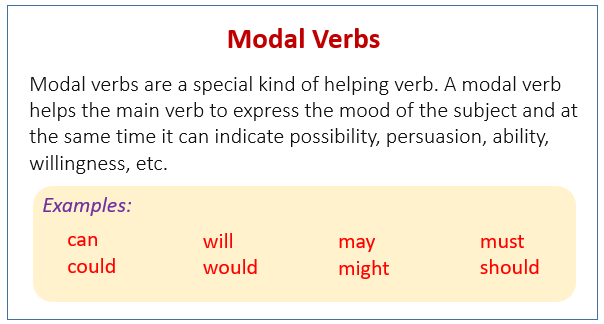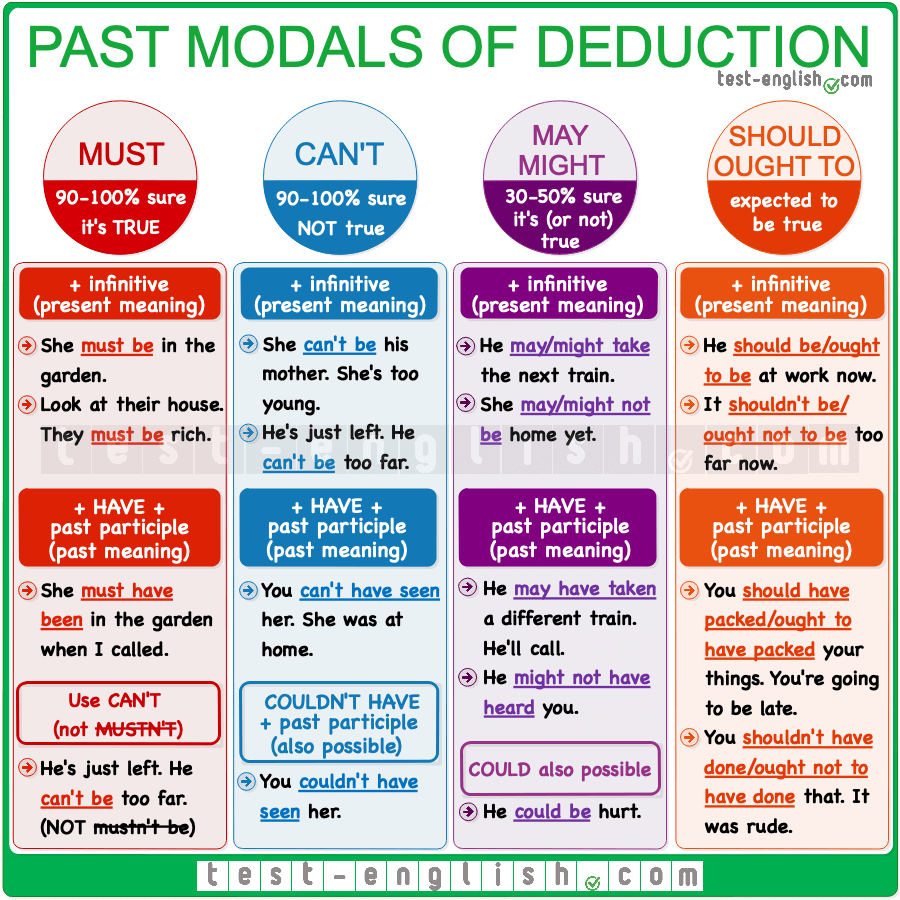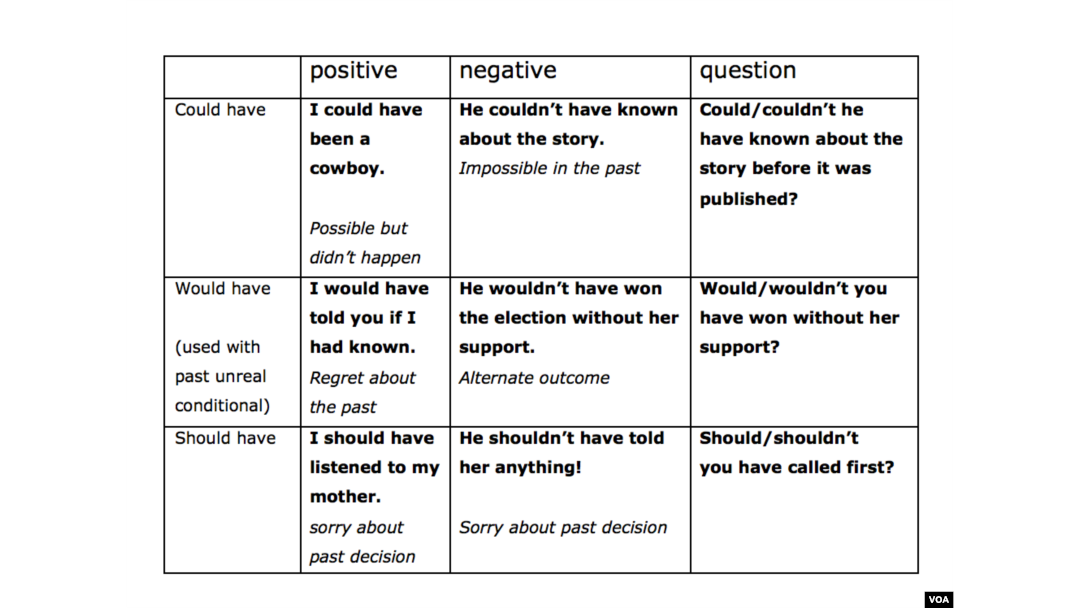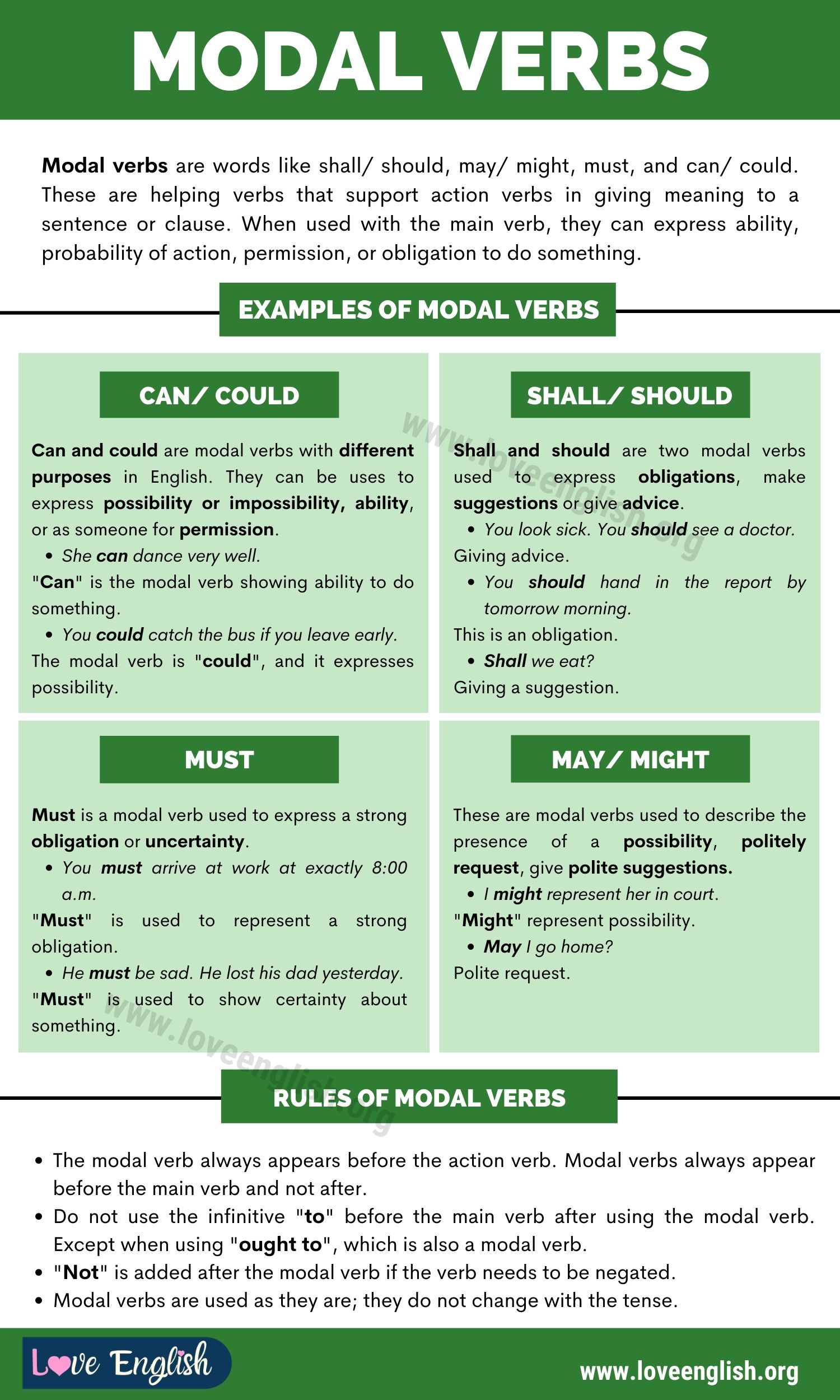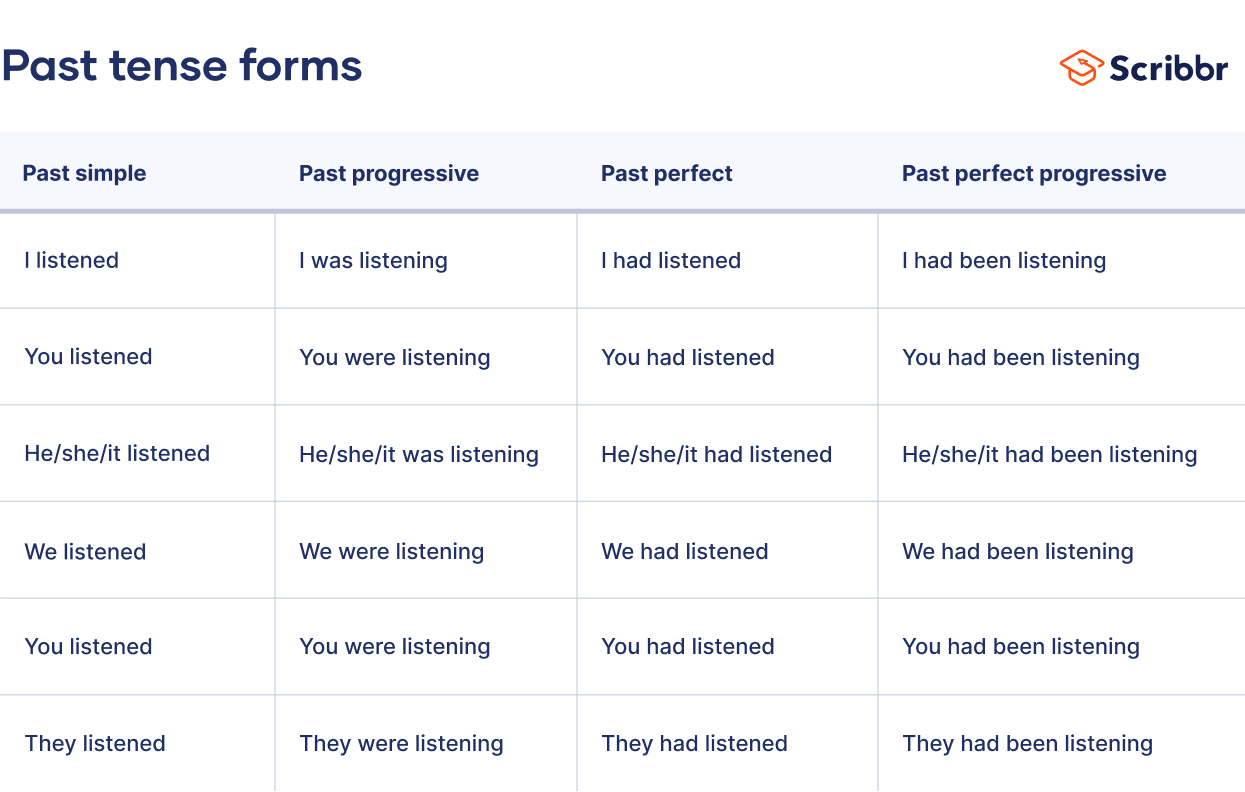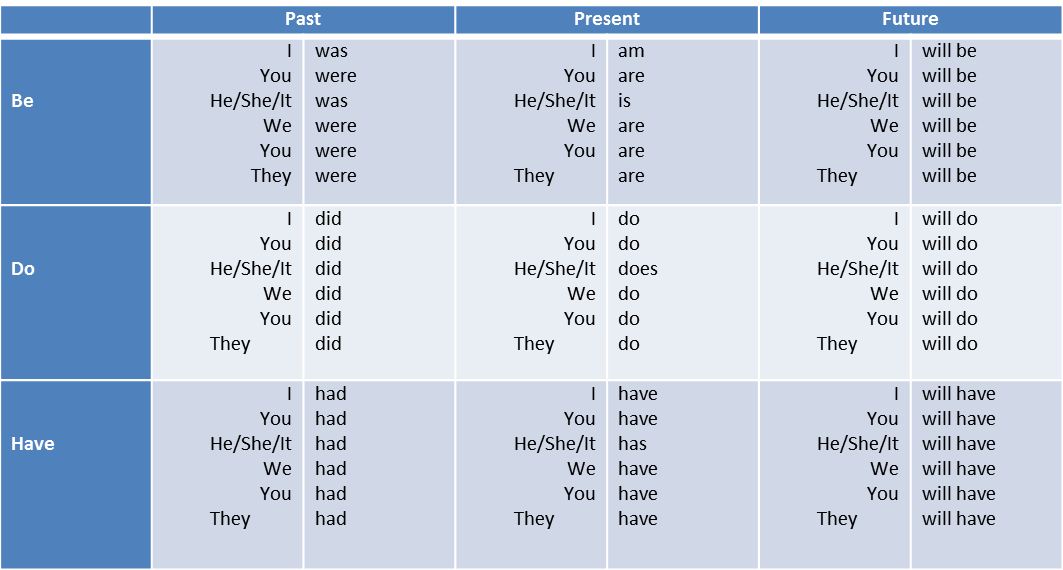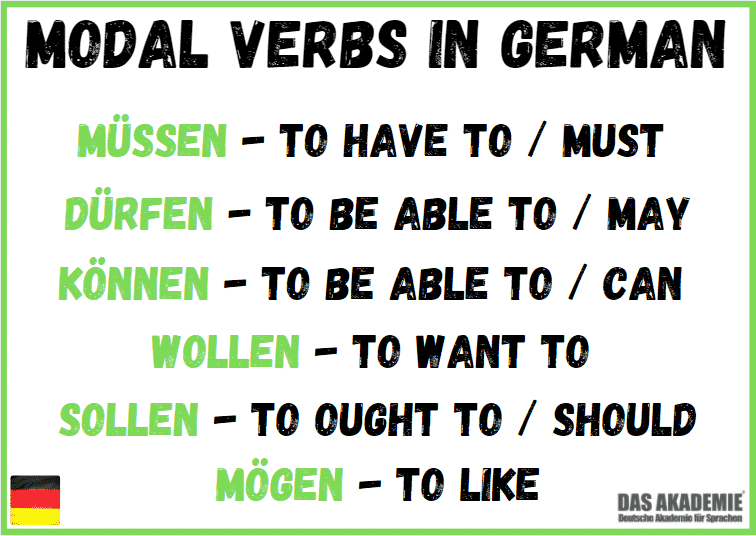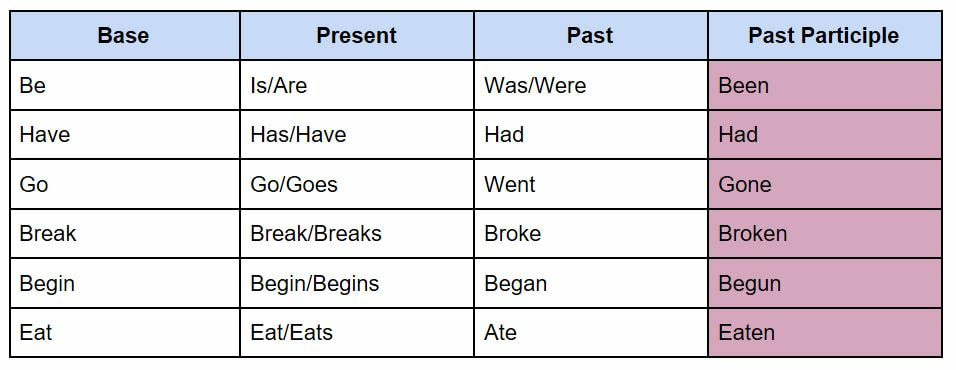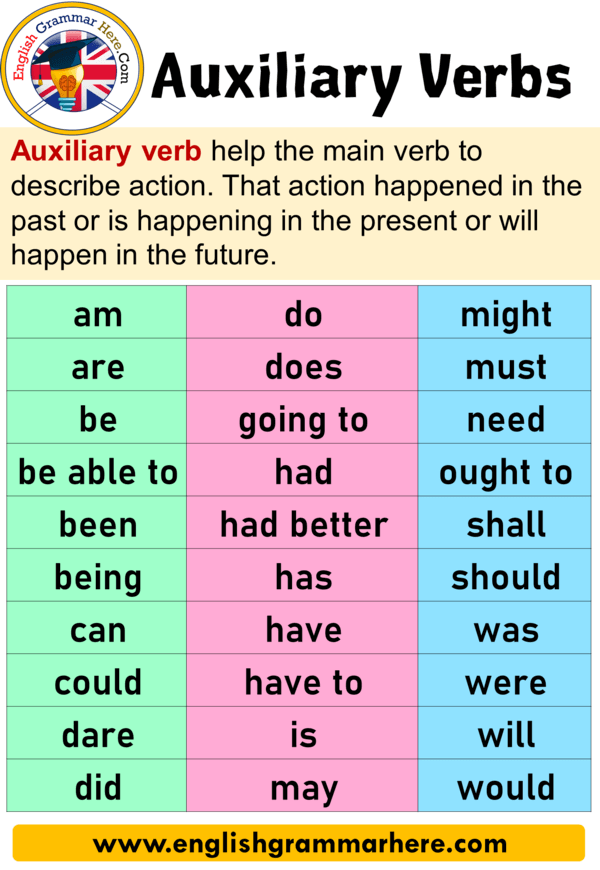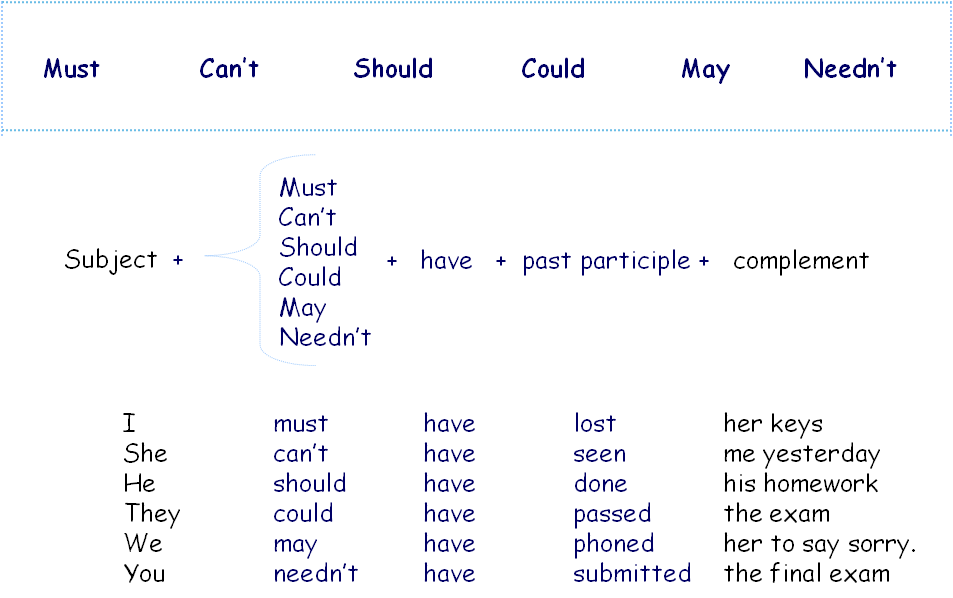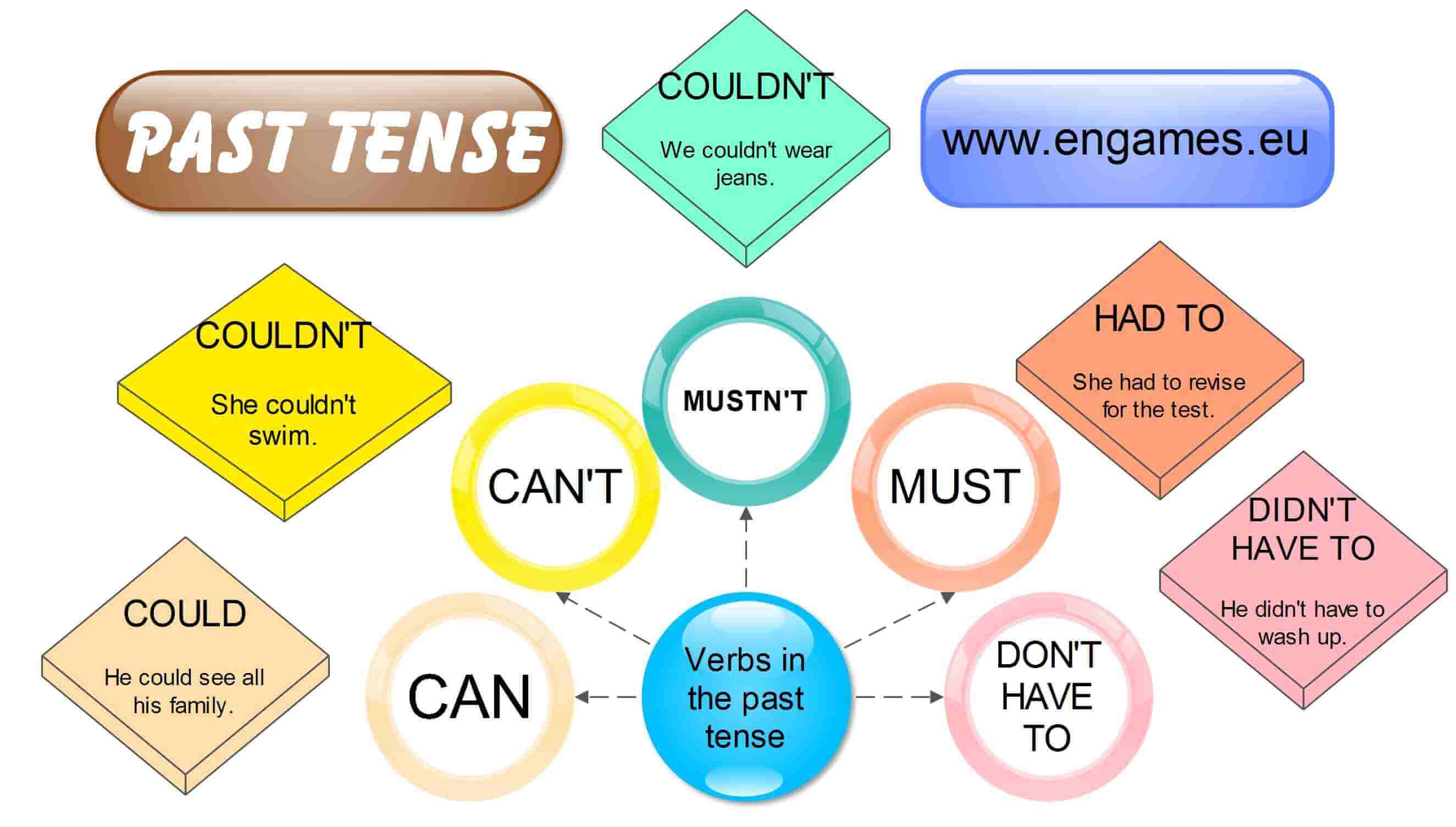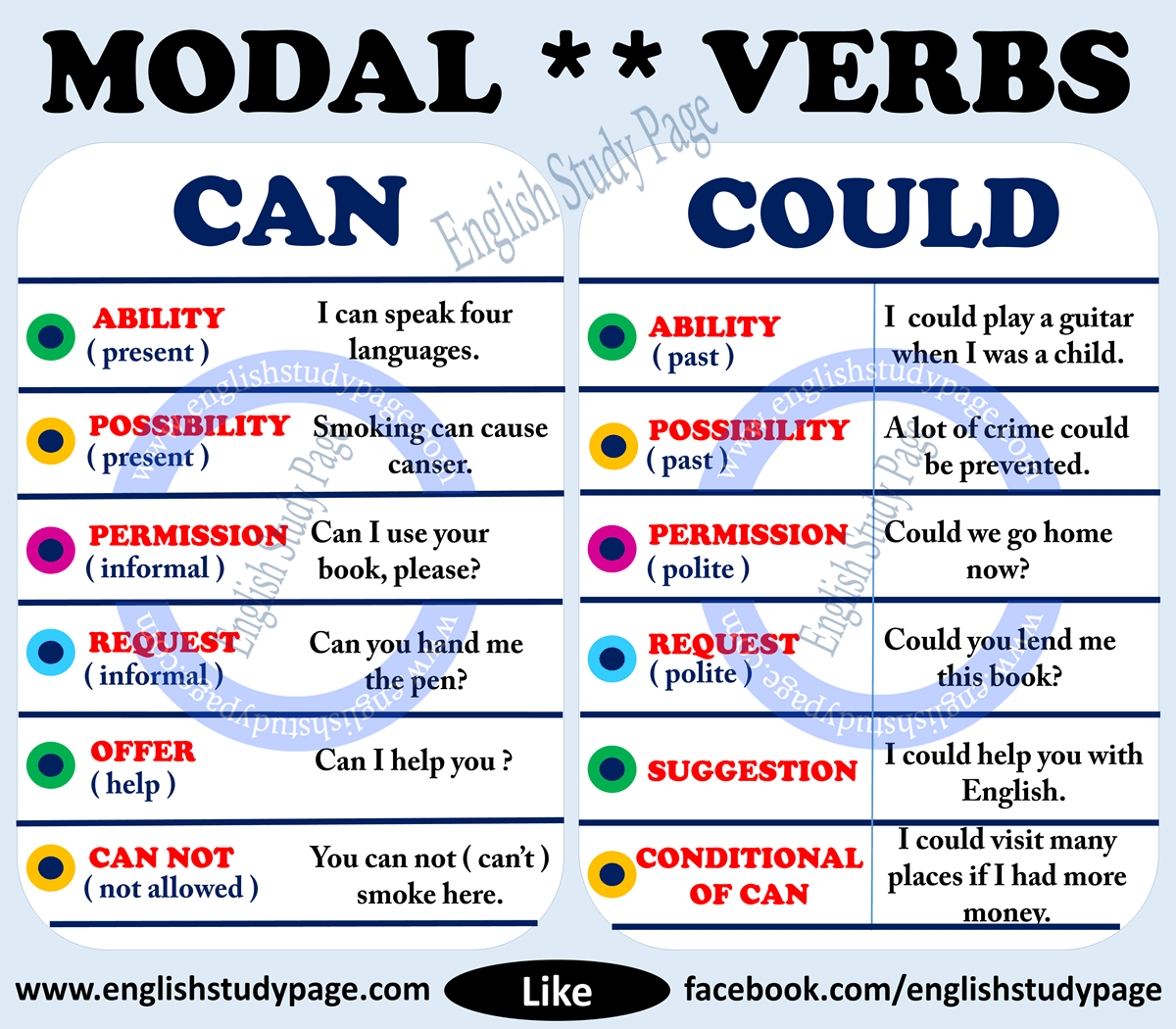
Course 12-Unit 2: Perfect modals meaning and form. check for must, will be able to, may and might | PPT
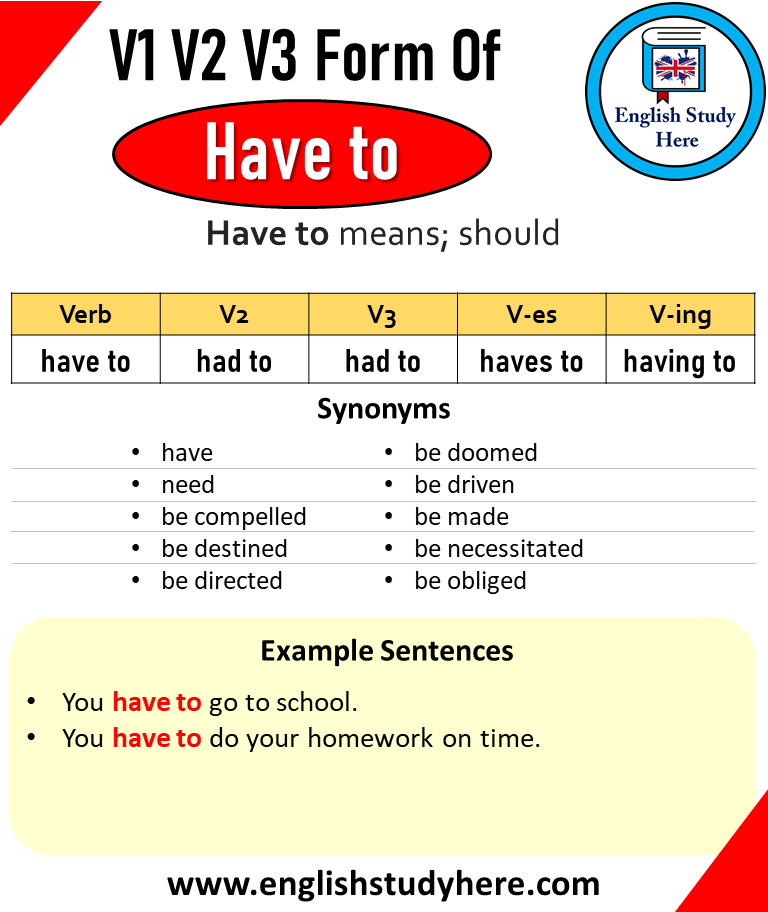
Past Tense of Have to, Past Participle of Have to, V1 V2 V3 V4 V5 Form of Have to - English Study Here

Learn English - Modal verbs are different to other types of verbs. They don't have an infinitive or a past tense. They have no “-ing” form so cannot be used as a




